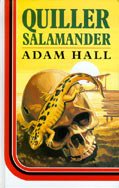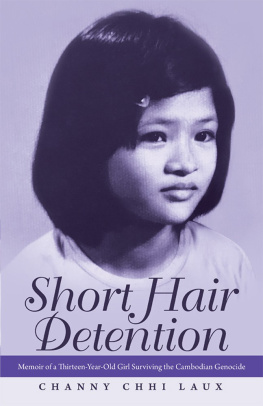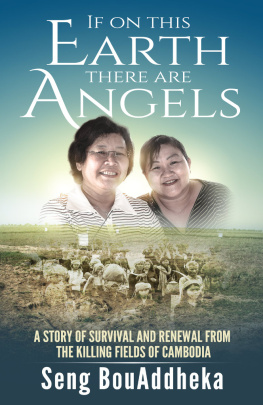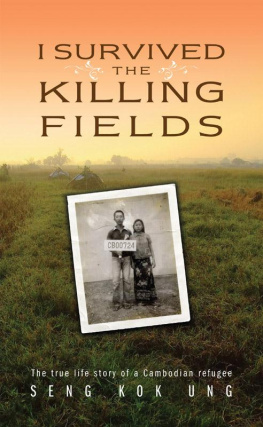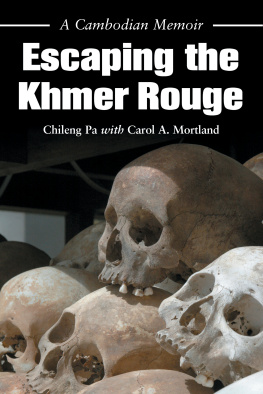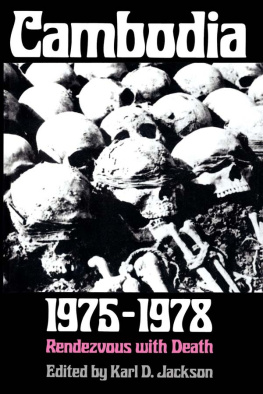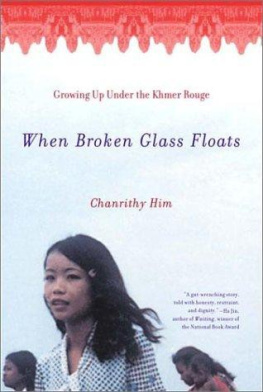Grandma Lee: Thank you for giving me a renewed freedom.
My Mother: You do know everything.
Yuko, my wife, thank you for your love and support.
To all the refugees around the world, past, present and future, there is no place like home.
Victims are the innocent.
Prologue
Cambodia was once part of the great Khmer empire. The kingdom extended beyond its present-day borders west to include a section of Thailand, north to encompass a major portion of Laos and south to Vietnam, incorporating part of the Mekong Delta, known to Cambodian people as Khmer Krom (Lower Cambodia). Angkor Wat was the capital. Over the centuries there were countless conflicts and border disputes between Cambodia and Thailand, and Cambodia and Vietnam. The people of Thailand insisted that the ancient capital, Angkor Wat, belonged to them. The Vietnamese laid claim over the Mekong Delta, the Kingdoms biological treasure-trove. In the long history of fighting between Cambodia and her neighbours, however, nothing caused as much trauma and destruction to my country as what it experienced at the hands of the revolutionaries who were known as the Khmer Rouge from 1975 to 1979.
The region of Southeast Asia, later known as Indochina, which included Cambodia, Laos and Vietnam, had become a French protectorate in 1893. These three nations gained a brief independence from France when they were ruled by Japan during the Second World War, but once hostilities ceased French colonialism returned. This time, however, a new ideology was brewing in Asia: communism. It came to the fore in China after Chairman Maos Communist Party defeated Chiang Kai-Sheks Kuomintang (the Chinese Nationalist Party) and established the Peoples Republic of China in Tiananmen Square, Beijing, on October 1, 1949. At around the same time, the Vietnamese Communist Party, (the Viet Minh), led by Ho Chi Minh, proclaimed the independence of Vietnam and had gained control of the northern half of the country by September 1945. France resisted the loss of her territories in the First Indochinese War until 1954. Because of fears Cambodia might ally itself with the Viet Minh to fight the colonial oppressor, Cambodian independence was granted on November 9, 1953. Norodom Sihanouk initially assumed the dual roles of King and Prime Minister, but two years later in 1955, he abdicated the throne, although everyone in Cambodia still referred to him as the King Father.
As a result of the connection with France, many Cambodians could go and study in Paris. During this period, some embraced Marxism, and once they returned home in the mid-1950s, they began to organize their own political parties. Among them was a man who later became known as Pol Pot.
The Cold War was in full swing by this time. The USA and the USSR were at loggerheads, and the fear of all Southeast Asia falling to communism gripped America. As Prime Minister, Prince Sihanouk pledged to keep Cambodia neutral during the 1954 Geneva Conference but refused to join SEATO - the Southeast Asia Treaty Organisation. One intention of SEATO was to block communism making further inroads into Asia and to fight against the North Vietnamese. By the late sixties, the Vietnam War was well underway. Inevitably armies from both sides spilled over the border into Cambodia. America wanted Cambodias approval to follow the Vietcong (North Vietnamese troops) and eventually Prince Sihanouk gave his consent. Although desperate to remain independent, Prince Sihanouk knew that since the departure of the French the Cambodian economy was in real trouble, and was hoping for a generous injection of greenbacks. When American money failed to materialise, his thoughts turned north and he had plan to travel to the USSR and China seeking economic support and military aid against the Vietnamese. Ironically, Phnom Penh was drowning with American influences and culture. Young men grew their hair long, wore flared shirts and bell-bottom trousers and everyone listened to the westernized Cambodian music which was the latest fashion.
Behind the joie de vivre , however, Cambodia was being inexorably dragged into the Vietnam War. By March 1970, tensions were running high along the Cambodian-Vietnamese border and in Phnom Penh anti-Vietnamese sentiment was on the rise and outbreaks of racial hatred between Cambodian and Vietnamese were soon common. School teachers and student leaders organised anti-Vietnamese demonstrations which attacked both the North and South Vietnamese embassies in Phnom Penh demanding that the North Vietnamese Army leave Cambodia immediately. As a child, I heard chilling stories of torture being undertaken by both sides. The Vietnamese buried three Cambodians alive in a small triangle with only their heads above ground. A fire was lit in the middle and the Vietnamese boiled a kettle on it. The Cambodians would bind the hands of Vietnamese prisoners with wire punched through their palms before throwing them into the Mekong River to swim home.
On March 18, 1970, Prince Sisowath Sirik Matak, Prince Sihanouks cousin, and General Lon Nol, the self-proclaimed President of a newly created Khmer Republic, with the tacit support of the United States of America, staged a coup dEtat to depose Prince Sihanouk while he was in Paris for medical treatment. The event marked the very fatal political turning point for the government and the people of Cambodia. It triggered a series of events that led to the greatest catastrophe and genocide in the history of Cambodia. It was an event that Prince Sisowath Sirik Matak, who was the main orchestrator, came to regret later and admitted in a letter to United States Ambassador to Cambodia, John Gunther Dean, that it was his biggest mistake in life.
A month after the coup, President Richard Nixon of the United States of America decided to invade Cambodia and begin carpet bombing along the Cambodian border in an effort to oust the Vietcong who had allegedly taken up position there. By August 1973 American B-52s had dropped more than two hundred thousand tons of bombs onto the region, equivalent to the amount of A-bomb dropped on Hiroshima in 1945. For the next five years, the war and bombing continued relentlessly all around Cambodias country side destroying the farmers and peasants traditional way of life and tip the balance of power between the Royalist in the countryside and the Khmer Republican in the capital. Many Cambodian peasants and farmers were victims of the bombings. Lives were lost and a large proportion of those who survived saw their homes and livelihoods destroyed. Some fled the countryside to the capital, Phnom Penh, becoming refugees in their own country; and others took shelter in the jungle joining the revolution.


